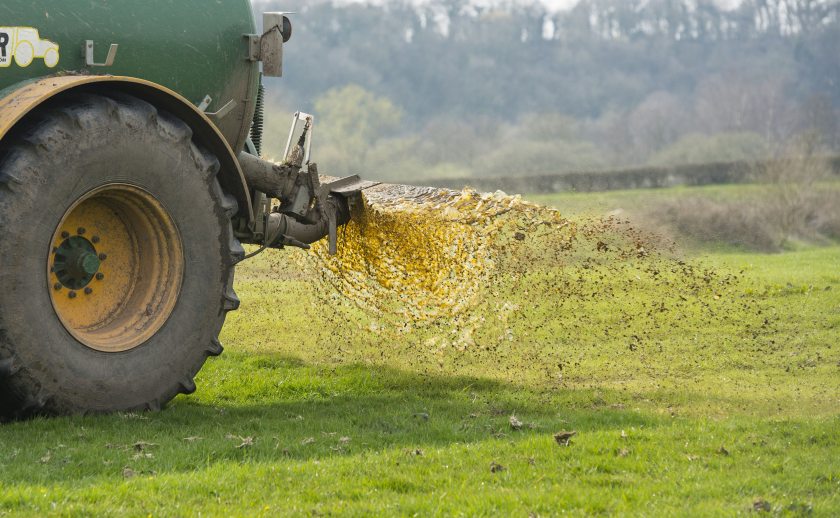
Northern Irish farmers are being urged to look at the Nutrients Action Programme (NAP) requirements to ensure they are compliant and to keep payments safe.
As the end of the closed period approaches, the Ulster Farmers’ Union (UFU) is reminding farmers that rules were updated a few years ago with new restrictions for spreading in February and early October.
As part of the change, farmers spreading slurry during the month of February must abide by increased buffer zones in fields adjacent to waterways.
These are as follows: From 20m to 30m from lakes; from 10m to 15m from any waterway; and from 3m to 5m if using Low Emission Slurry Spreading Equipment (LESSE) provided the land has a slope of less than 10%.
The maximum slurry application rate when spreading in February was reduced from 50m3/ha (4500gallons/acre) to 30m3/ha (2700gallons/acre) at any one time.
Slurry and other organic manures must only be spread when soil and land conditions are appropriate in line with the NAP requirements.
Contractors are also required to comply with these rules, with the UFU calling on them to familiarise themselves with the various restrictions so that they too remain compliant.
The union is also reminding farmers of the upcoming deadline to submit records of slurry and all other organic manures exported from farms during 2023.
Any farm exporting slurry, chicken litter or manure to another farm must submit this information online to the Northern Ireland Environment Agency (NIEA) by the end of January 2024.
Under NAP, farmers must be able to show they meet the 170 kg of organic nitrogen per hectare limit over a year.
This is effectively a stocking limit and while in NI over 90% of farms are working under this limit, those that are over the 170kgN/ha/year must take action to ensure cross compliance penalties are avoided.
Farmers can choose to export slurry in order to meet this limit, the UFU says, however, they must record and submit this information online by 31 January.
It says that farmers above the 170 kgN/ha/year limit should consider applying for a derogation if they can meet the criteria.
The deadline for applying for a nitrates derogation is 1 March 2024, therefore UFU is urging farmers to relook at their N loading now to allow them time to consider their options.
A nitrates derogation allows a higher organic nitrogen loading of up to 250 kg N/ha/year on some farms. All other farms in Northern Ireland must comply with an organic nitrogen loading limit of 170 kg N/ha/year.
The UFU is urging any farmer who feels that they may need a derogation to submit an application online to NIEA by the 1 March closing date.
"While the additional requirements may seem off-putting, the derogation option may well be the most suitable option for a farm business," the union says.
"Farmers who are already operating within an approved derogation for 2023 are required to submit a Fertilisation Account to NIEA by 1 March 2024 and an application form if they wish to continue at the higher stocking rate in 2024.
"Failure to submit a Fertilisation Account could result in penalties being applied to area payments."
